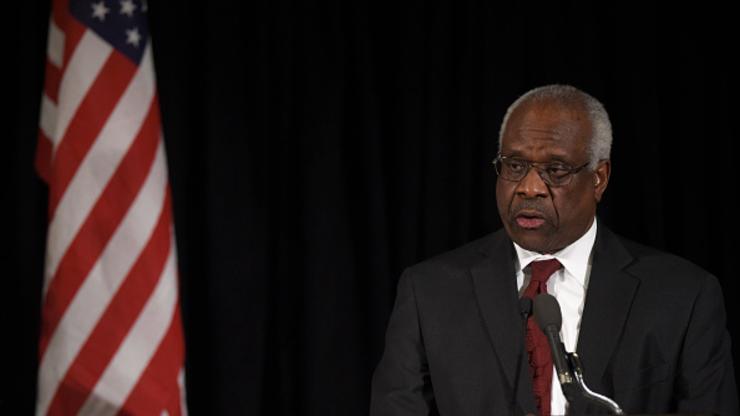He questioned the federal marijuana ban in a passionate statement.
Across the United States, different jurisdictions have begun to ease their ban on marijuana. While some states have chosen to decriminalize the substance and simply stop policing the substance, others have opted to fully legalize pot and have established state-sponsored markets.
The United States Congress even recently re-introduced legislation to decriminalize the substance at the federal level, a tell-tale sign of the changing attitude towards cannabis consumption. Conservative Supreme Court Justice Clarence Thomas issued a fiery dissent on Monday (June 28) arguing that federal marijuana prohibition may no longer make sense.

Mark Wilson/Getty Images
“A prohibition on intrastate use or cultivation of marijuana may no longer be necessary or proper to support the Federal Government’s piecemeal approach,” wrote Thomas. The infamously conservative justice shared his thoughts in the court’s denial of a petition to hear an appeal for a Colorado medical marijuana dispensary.
The case centers on an IRS investigation into whether it illegally deducted business expenses. The current federal tax code denies companies dealing in controlled substances the privilege of deducting costs the way other businesses are able to.
“Under this rule, a business that is still in the red after it pays its workers and keeps the lights on might nonetheless owe substantial federal income tax,” Thomas continued.

Lauren DeCicca/Getty Images
Thomas also noted that 36 states across the country allow for medical marijuana use, while 18 allow recreational use. The U.S. Department of Justice policy has long been against interfering in those states’ policies despite current federal law.
“Once comprehensive, the federal government’s current approach is a half-in, half-out regime that simultaneously tolerates and forbids local use of marijuana,” he wrote. “This contradictory and unstable state of affairs strains basic principles of federalism and conceals traps for the unwary.”

Chip Somodevilla/Getty Images
While the dissent doesn’t immediately change anything, it could assist in inspiring lower-level judges to strike down laws that make marijuana illegal.
[via]


